I have been reading poetry every day of Lent.
It is a discipline "by accident," which I suspect is actually the very best kind. It isn't a task that I employed of myself. It is not a deliberate goal I've set to fast from or add to my dailies.
On the first day of Lent, I just picked up my Robert Frost anthology and started reading as part of my quiet time in the morning with the Lord. The next day I did the same, and the next day, and the next, and pretty soon I became amused at the way God had snuck this into a spiritual formation practice.
I do believe that God is just as involved in our more deliberate ideas, but I rejoice that I am hearing him in more subtle ways.
Growing up, poetry was always apart of my household. Poetry books adorned our shelves but they didn't collect dust. Someone was always reading aloud (or in some cases reciting) poetry. My parents, both writers, could often be seen fixing the tape on a typewriter or editing a newly drafted manuscript of one another’s. There were many open ended questions, many musings, many discussions.
Such exposure to poetry was a major part of forming how I consider the metaphorical aspect of most things. Like the Minor White quote I mentioned in my last post, poetry, like photography, teaches us to see things as they are, but also for what else they are.
Poetry is very good at this matter. It is an arrow always pointing to something beyond itself. Prose sometimes accomplishes this but never so succinctly as Poetry.
At the high school where I work, I am blessed to have the opportunity during football season to teach a yoga class once a week with the team. Yoga in athletics is increasingly valued for its physical benefits like flexibility, body control, and decreased risk of injury. Understanding the limits of the body and being intentional about increasing those is a paramount practice for any athlete.
But I also try to introduce stillness, deep breathing, and relaxation, which for sixty teenage boys can be a challenge. But the feedback I've gotten is that portion of the class is actually their favorite.
It could be that some just use it for a time of rest, one they would grow weary of eventually. But for others, as my best friend first aptly observed, I suspect the relief they feel is because these are the only minutes of their week where they are not receiving any sensory input.
As adults we are well aware of the near constant streams of information poured into, all around, and over us. From media outlets to social media, from personal relations to professional communications, from internal feedback to external review, we are inundated with input. It is no different for our youth who are also, in addition to the rat race, cramming academic standards and extracurricular performances into their minds and bodies at unprecedented levels.
So, in this century, sitting still for five minutes in the quiet with eyes closed, turns out to be quite a gift.
Just as I do for studio classes, it is during this part that I read poetry. I wasn't sure how the boys would handle it at first, but I put it out there to try. I didn't get much feedback but then, the first class I didn't read poetry during our quiet time, the boys immediately protested. "Where is the poem???" they asked me. I took that as a sign to keep on with it.
I have tried to cultivate an appreciation for poetry in my own two sons, though the battle to establish this within our rhythms is much harder nowadays. My mother helped me build a little library of books for young readers that are collections of iconic poets, which are now mostly out of print. Authors like Whitman, Frost, Kipling, Poe, Shakespeare, Sandburg, Dickinson and Carroll. Much of their language is above my young sons’ heads, but we read them anyway. Though it isn't as commonplace a part of our routine as it was for me as a child.
I read one the other morning and my oldest son asked, "Why do you read these to us?"
An honest question and quite frankly, why indeed?! Isn't that the beautiful thing about poetry, that it is not bound by "why." It does not require reason to be valuable, it does not even have to follow certain rules to be important.
"Why?" is a laughable question for poetry.
It's why poets often get a bad wrap for their flighty ideals and romanticized concepts. But don't we need people who can see things not just as they are but for how they could be? Arguably it is the more important gift, for the world will have plenty of evidence to point to how things actually are. Poetry allows us to get wrapped up in beauty and wonder. It speaks to a part of our souls that are intangible, immeasurable, and infinite. It grasps at the unseen, it makes real the possibility, it gently turns our understanding in a way that is liberating.
Pastor and author John Eldredge often speaks of the healing power of beauty. Beauty is certainly and easily found all around us in nature; vast seas, immense mountains, refreshing rain, vibrant sunrises, sobering sunsets, innumerable colors, sizes, and shapes of flowering blooms.
Beauty is commonly found in melody. Timeless tunes, nostalgic notes, mosaics of music that evoke our emotions can empower us with boldness, warm our hearts, or bring us to tears. Music can transport us places, places from the past and places of future possibility.
Beauty is often found in art. A whole sublayer of fundamental elements of art - line, form, shape, color, texture, space, and value - work in concert to produce a balanced composition that touches us, literally moves our spirit, even if all we do is look at it. Ask any artist from where these pieces are born from, it is a difficult source to pinpoint, but no less real.
We find beauty in one another. In watching the blooming curiosity of a child, in feeling seen and understood in our own chaos, in the tender last moments of our stories together, in overcoming that which seemed impossible, in letting adversity shape us into an instrument of God, in an embrace, in a look, in a word of encouragement.
Poetry is another example of beauty in our world that speaks the heart language, the soul language, the language of God. If beauty heals then it is no wonder it is the language he chooses. Jehovah Rapha, we find the God who Heals all throughout scripture:
“…for I am the Lord who heals you.” Exodus 15:26
“I have heard your prayer and seen your tears, I will heal you.” 2 Kings 20:5
“I will give you back your health and heal your wounds.” Jeremiah 30:17
“The Lord says, I will heal you of your faithlessness…” Hosea 14:4
“But for you who fear my name, the Sun of Righteousness will rise with healing in his wings.” Malachi 4:2
“He forgives my sins and heals all my diseases.” Psalm 103:3
“He heals the brokenhearted and bandages their wounds.” Psalm 147:3
“‘May they have abundant peace, both near and far,’ says the Lord, who heals them.” Isaiah 57:19
What if every beautiful thing here is part of God’s attempt to heal? Though everything beautiful here is finite, they all with equal reverence are pointing to the One who sourced them, the One who never ends.
Let our lives be like the poem, then: beautiful, healing, finite, but ever pointing beyond ourselves as an arrow.
An arrow in the hands of a great archer.
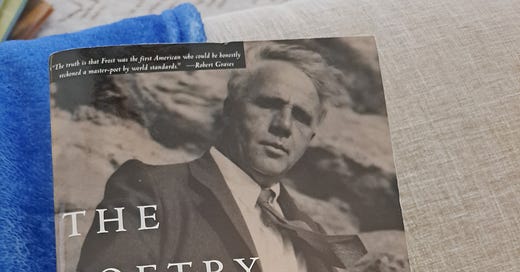





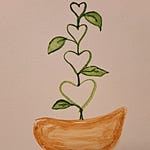
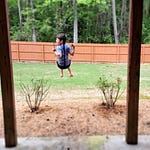

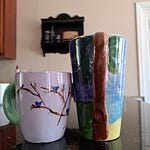

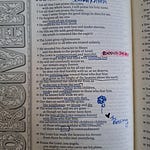
Share this post